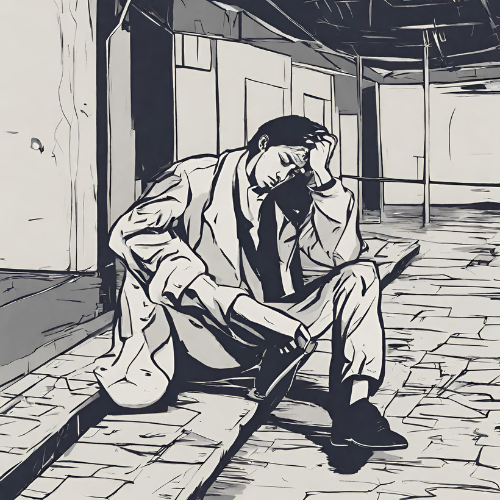Navigating Depression: Understanding Symptoms, Causes, and Treatment Options
What is Depression? Depression is a common mental health disorder characterized by persistent feelings of sadness, hopelessness, and loss of interest or pleasure in activities once enjoyed. It can affect anyone, regardless of age, gender, or background, and can have a significant impact on daily functioning and overall quality of life.
Symptoms of Depression:
- Persistent feelings of sadness, emptiness, or despair
- Loss of interest or pleasure in activities once enjoyed
- Changes in appetite or weight
- Difficulty sleeping or oversleeping
- Fatigue or loss of energy
- Feelings of worthlessness or guilt
- Difficulty concentrating or making decisions
- Thoughts of death or suicide
Causes of Depression:
- Biological Factors: Imbalances in brain chemistry, genetics, or changes in brain structure and function may contribute to the development of depression.
- Psychological Factors: Trauma, stress, or unresolved emotional conflicts can trigger or exacerbate depressive symptoms.
- Environmental Factors: Social isolation, financial difficulties, relationship problems, or major life changes such as loss or illness can increase the risk of depression.
- Medical Conditions: Certain medical conditions, such as chronic illness, hormonal imbalances, or neurological disorders, may be associated with depression.
Risk Factors for Depression:
- Personal or family history of depression or other mental health disorders
- Chronic stress or traumatic life events
- Substance abuse or addiction
- Chronic illness or chronic pain
- Certain medications or medical treatments
- Social isolation or lack of social support
- Low self-esteem or perfectionistic tendencies
- Gender (women are more likely to experience depression than men)
Diagnosis of Depression:
- Clinical Assessment: Your healthcare provider will conduct a thorough evaluation of your symptoms, medical history, and psychosocial factors to assess for depression.
- Diagnostic Criteria: Depression is diagnosed based on specific criteria outlined in the Diagnostic and Statistical Manual of Mental Disorders (DSM-5), including the presence of depressive symptoms for a certain duration and impairment in daily functioning.
- Screening Tools: Standardized screening tools, such as the Patient Health Questionnaire (PHQ-9) or Beck Depression Inventory (BDI), may be used to assess the severity of depressive symptoms.
Treatment Options for Depression:
- Psychotherapy: Cognitive-behavioral therapy (CBT), interpersonal therapy (IPT), or other forms of psychotherapy can help individuals identify and change negative thought patterns and develop coping skills to manage depressive symptoms.
- Medication: Antidepressant medications, such as selective serotonin reuptake inhibitors (SSRIs), serotonin-norepinephrine reuptake inhibitors (SNRIs), or tricyclic antidepressants (TCAs), may be prescribed to help regulate mood and alleviate depressive symptoms.
- Lifestyle Modifications: Engaging in regular exercise, maintaining a healthy diet, getting adequate sleep, and practicing stress management techniques can help improve mood and overall well-being.
- Support Groups: Participating in support groups or peer-led organizations can provide emotional support, validation, and practical coping strategies for individuals living with depression.
Conclusion: Depression is a complex and multifaceted mental health disorder that can have a profound impact on individuals’ lives. By understanding the symptoms, causes, risk factors, and treatment options for depression, individuals can take proactive steps to seek help, manage their symptoms, and improve their overall quality of life. If you or someone you know is struggling with depression, it’s important to reach out to a healthcare professional or mental health provider for evaluation and support. Remember, depression is treatable, and with the right support and treatment, recovery is possible.




